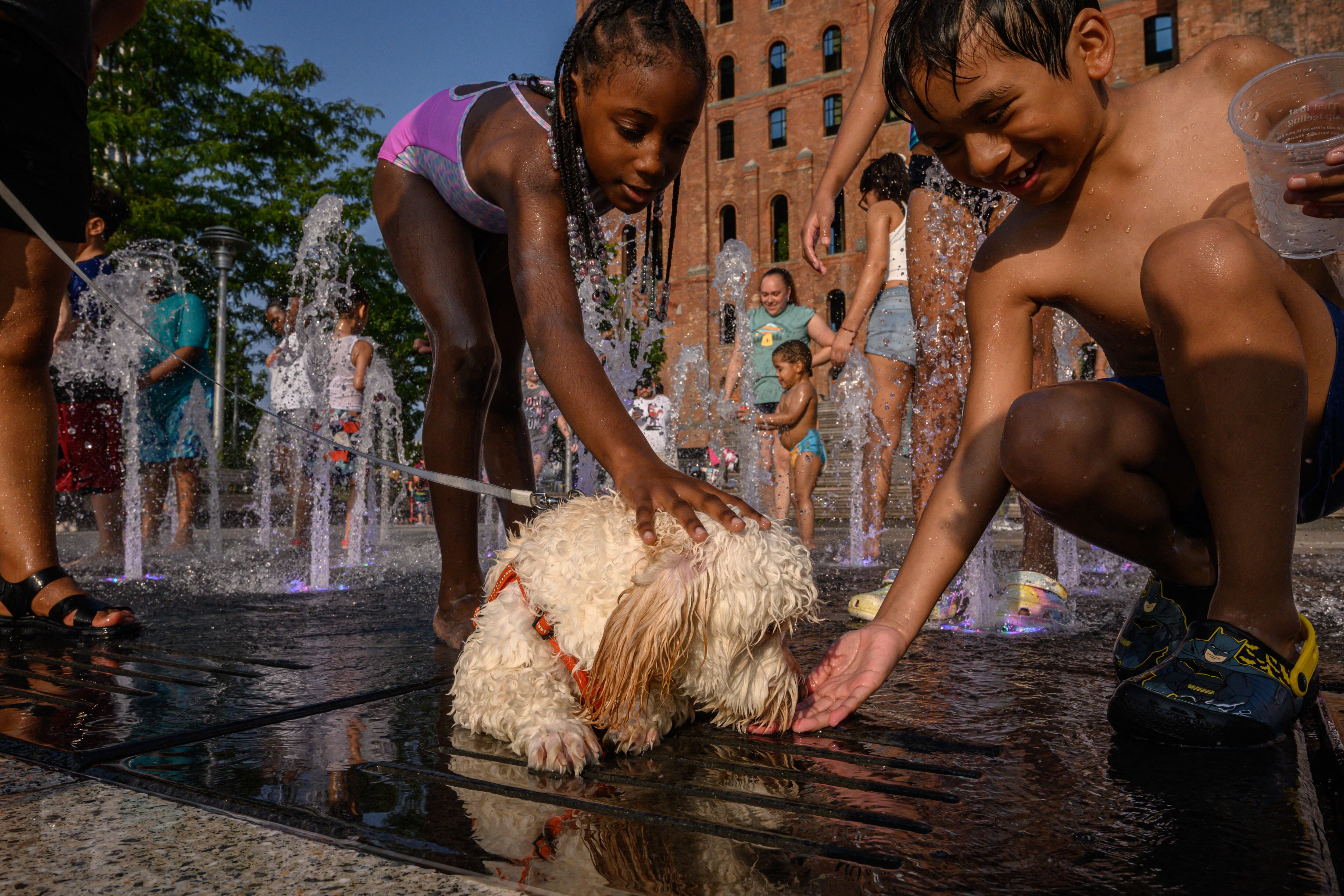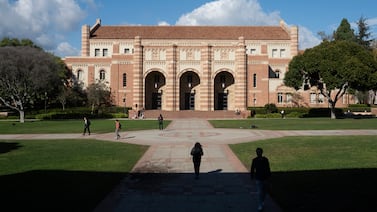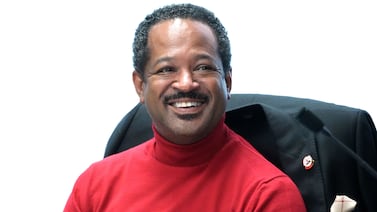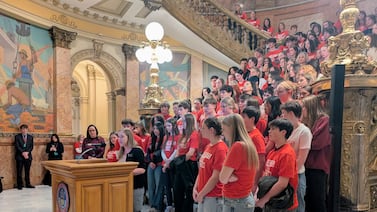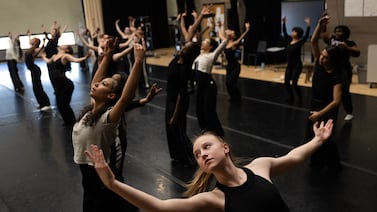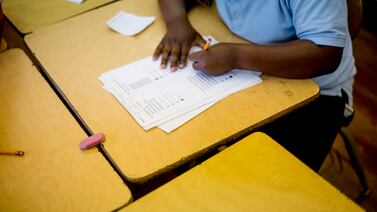Sign up for Chalkbeat New York’s free daily newsletter to keep up with NYC’s public schools.
Schools across New York state would not be allowed to send students into classrooms that reach 88 degrees or hotter under a bill passed by state lawmakers this month.
Debate over the law, which has not yet been signed by Gov. Kathy Hochul and would not take effect until 2025, comes as the region faces a heat wave this week that is already prompting some school districts across the state to call half days and dismiss students early.
The law’s backers say the measure would prevent students from being forced into classrooms that are dangerously warm, and it requires schools to come up with policies to protect students and staff on hot days.
Though a small share of school days are excessively hot, that number is growing and will likely worsen because of climate change. School years in New York City routinely include more than 30 days with temperatures at or above 80 degrees, according to an analysis of federal data.
Rising temperatures aren’t just uncomfortable — research suggests they can also hurt student performance. One New York City study found that on 90-degree days students who took Regents exams were 11% more likely to fail than on a 72-degree day.
“This is a health issue,” said Chris Eachus, the bill’s sponsor in the state Assembly and a Democrat who represents parts of Orange and Rockland counties. “Why do we have temperature limits both high and low on animal shelters, but not on our own kids in school buildings?”
If Hochul signs the bill, its impact on New York City schools may be limited. The city has spent hundreds of millions of dollars in recent years to outfit nearly all classrooms with air conditioning. That means many of the city’s classrooms would likely fall within the state temperature caps, though educators have struggled with broken units or teach in rooms that were not covered by the air conditioning expansion.
“There should not be any classroom in the city that isn’t air conditioned,” said Assemblyman Jeffrey Dinowitz, a Bronx Democrat. “If there are some that aren’t for some reason or another, I guess this would provide an incentive for the city to do the right thing.”
At a press conference on Monday about the impending heat wave, New York City officials said school will continue this week. First Deputy Chancellor Dan Weisberg noted that school custodians would ensure air conditioners are switched on before students arrive, and principals may curtail outdoor activities like recess. (Schools were closed Monday for Eid and will be closed Wednesday for Juneteenth.)
Still, the bill’s critics fear that it will nudge some districts to pivot to remote instruction or cancel classes when temperatures rise, potentially disrupting instruction without guaranteeing students will be in spaces that are cooler.
Some critics of the bill have also inaccurately claimed that the bill would require schools to shut down or pivot to remote learning when indoor temperatures reach 82 degrees. In fact, the legislation says schools must take mitigation measures like turning on fans and drawing blinds at that temperature.
Students can stay in classrooms until temperatures reach 88 degrees and even then there is no requirement that school buildings shut down entirely. (School kitchens, which can reach notoriously hot temperatures, are exempt from the caps.)
Eachus said some schools could use spaces like auditoriums to show movies on hot days if it’s the only air conditioned space. But he said he’s also comfortable with schools pivoting to virtual learning if necessary.
A spokesperson for Hochul said the governor is reviewing the legislation, but did not indicate whether she plans to sign it.
A New York City Education Department spokesperson emphasized that the city has expanded access to air conditioning, but also noted that implementing the law would be “extremely challenging” without additional funding or other resources.
Educators, parents, and students: Let us know if your school has air conditioning this week by emailing ny.tips@chalkbeat.org.
Alex Zimmerman is a reporter for Chalkbeat New York, covering NYC public schools. Contact Alex at azimmerman@chalkbeat.org.

